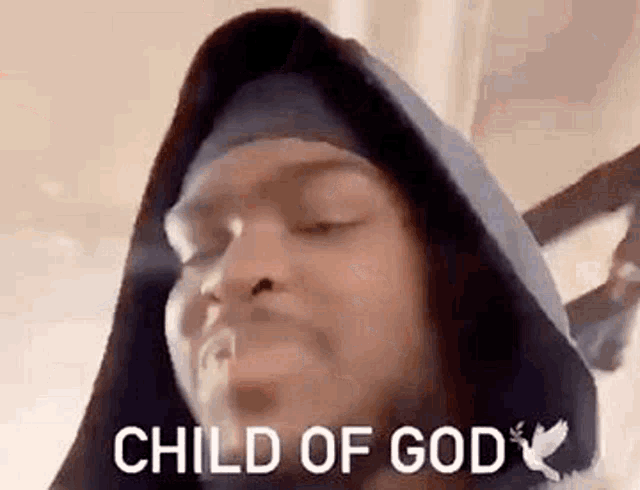What's up, WALK THRU Crew!
At WALK THRU, we dive beneath the surface of scripture to uncover hidden gems that have been waiting for you all along. Whether you're a seminary graduate or just opened your Bible for the first time, I'm thrilled you're here as we examine the extraordinary in what might seem ordinary.
One time back in middle school, I was simply walking through the cafeteria when a massive fight broke out right next to me. Before I knew what was happening, teachers were pulling students apart, security was rushing in, and somehow – despite not throwing a single punch – I got swept up in the aftermath. I had to go to the principal’s office simply for being at the wrong place at the wrong time. That's exactly how I feel every time I read Genesis 14.
When I read about Lot being captured in a regional war he had nothing to do with, I see a man who was simply in the wrong place at the wrong time – caught up in battles that weren't his, paying for conflicts he didn't start. And when Abram steps in to rescue him, I see beyond the battle narrative to something profound about how God works even when we're collateral damage in someone else's fight. It's not just an ancient war story – it's a powerful glimpse into how God provides rescuers when we're caught in crossfire we never asked for.
Wait, What's Actually Happening Here?
Let's be real - Genesis 14 can be confusing with all those ancient names and places! Here's what's actually going down:
Four powerful kings from the east (including a king named Kedorlaomer) had forced five local kings in the Dead Sea region to pay them taxes for 12 years. In year 13, the local kings said, "Enough!" and rebelled.
So the four eastern kings came with their armies to teach them a lesson. They went on a military campaign, defeating several other groups along the way (showing off their strength), before finally facing the five rebel kings in the Valley of Siddim (near the Dead Sea).
The battle was a disaster for the rebels! The valley was full of tar pits, and as they fled, some fell in. The kings of Sodom and Gomorrah escaped by running to the hills, but the eastern kings looted their cities and took captives – including Lot, Abram's nephew, who was living in Sodom.
When Abram heard about this, he gathered 318 trained men from his household and chased after the eastern kings. He launched a surprise night attack near Damascus, defeated them, and rescued all the captives, including Lot, along with their possessions.
On Abram's victorious return, two kings came out to meet him: the king of Sodom (who wanted his people back) and Melchizedek, the king of Salem and "priest of God Most High," who brought refreshments and blessed Abram. Abram gave Melchizedek a tenth of everything, then returned all the people to the king of Sodom but refused to keep any possessions for himself.
That's it! A regional conflict, a rescue mission, and two very different kings with two very different agendas meeting Abram afterward.
Breaking Down the Chapter
Verses 1-4: The coalition of eastern kings and their rebellion
Verses 5-7: The eastern kings' military campaign
Verses 8-12: The battle of the Valley of Siddim and Lot's capture
Verses 13-16: Abram's rescue mission
Verses 17-20: Melchizedek's blessing
Verses 21-24: Abram's refusal of the king of Sodom's offer
But here's what's fascinating – notice the movement? The chapter begins with kings fighting over earthly territory and ends with Abram refusing wealth from one king while receiving blessing from another, mysterious king. It transitions from horizontal conflict to vertical covenant.
Christ as our Melchizedek
Genesis 14 unveils Christ through the mysterious figure of Melchizedek, who foreshadows Jesus as the ultimate King-Priest. Just as Melchizedek arrives with bread and wine to bless Abram after battle, Christ brings the elements of communion to bless us after our spiritual warfare. Melchizedek's status as "king of righteousness" and "king of peace" directly prefigures Jesus, who rules in perfect righteousness and brings true peace.
Abram's tithe to this king-priest establishes the principle that even the father of faith recognized a greater spiritual authority, pointing to how all believers submit to Christ's superior priesthood—one that, as Hebrews 7 confirms, transcends time and earthly lineage.
Most profoundly, Abram's rescue of Lot from captivity mirrors Christ's mission to rescue us from the captivity of sin, demonstrating that before we understood our need for salvation, God was already sending a Rescuer to bring us home.
The Human Element: Abram's Character
When we reach Abram's response to Lot's capture, the tone shifts. Suddenly, the text becomes personal. In a world of power-hungry kings, one man acts out of familial loyalty – not because of political gain, but because his nephew needs help. "When Abram heard that his relative had been taken captive, he called out the 318 trained men born in his household and went in pursuit" (Genesis 14:14).
This is revolutionary. In a world where kings waged war for territory and dominance, Abram wages war for relationship and rescue. He's not just a wandering shepherd – he's a man of decisive action, military skill, and selfless courage.
Why This Matters Today
Too often, we skim Genesis 14 as merely transitional – just another event in Abram's journey. While battles between ancient kings might seem irrelevant, we miss something crucial when that's our only focus. This chapter is primarily about contrasts:
Earthly kingdoms versus God's kingdom
Taking versus giving
Temporal wealth versus eternal blessing
HOLD UP RIGHT NOW!!!
Yo, I'm SHOOK by what just happened in Genesis 14:18-20! In the MIDDLE of all this chaos and warfare, sandwiched between bloody battles and political drama, the text suddenly introduces Melchizedek - a name that literally means "KING OF RIGHTEOUSNESS"!
This mysterious figure appears OUT OF NOWHERE - no genealogy, no backstory, no explanation - and he's simultaneously a KING and a PRIEST of God Most High! That combination wasn't even ALLOWED under Mosaic Law! Kings came from Judah, priests from Levi, and never the two could mix... until JESUS!
And look at what he brings! BREAD and WINE! The same elements Jesus would use to establish communion! This ain't coincidence, family - this is DIVINE FORESHADOWING!
But here's what got me running laps around my living room: Hebrews 7:3 tells us Melchizedek was "without father or mother, without genealogy, without beginning of days or end of life, RESEMBLING THE SON OF GOD, he remains a priest forever."
FOREVER! While every other figure in Genesis has their lineage carefully traced, Melchizedek stands outside of time - an eternal priest-king who blesses Abram and receives his tithe!
This means that 2,000 years before Jesus walked in Jerusalem, before a single word of the Law was given, God had ALREADY established an eternal priesthood that would eventually be fulfilled in Christ! Your salvation wasn't Plan B - it was ordained before time began!
So when the world is falling apart around you, when kings are battling and everything feels chaotic, remember this: THERE HAS ALWAYS BEEN A KING-PRIEST OF PEACE standing outside of time, ready to meet you on your journey with bread, wine, and blessing! And His name is Jesus, our eternal Melchizedek!
Your Turn to Walk Through
As you read Genesis 14 again (and I encourage you to do so), consider:
Where do you see yourself in this narrative – caught in conflicts beyond your control, stepping out to rescue others, or receiving blessing from unexpected sources?
What does the appearance of Melchizedek reveal about God's eternal plans working behind human history?
Remember, this isn't just an ancient battle account – it's a revelation of how God works through human conflicts to establish eternal principles and point us toward our eternal King-Priest.
Join the Conversation
I'd love to hear your thoughts on Genesis 14 and how it speaks to your own journey. Share your insights, questions, or personal reflections below - this is a space where we can walk through scripture together. Let's GO!









